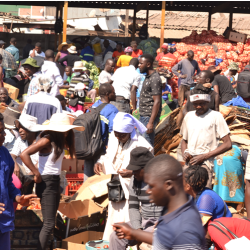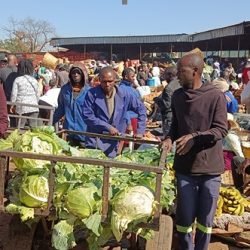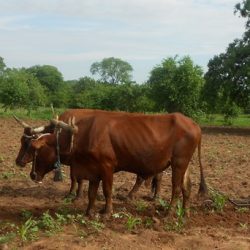Decolonizing urban planning through African values and indigenous markets
Decades after independence from colonial masters, most African countries continue to perpetuate colonial urban planning approaches that were designed to exclude and marginalize the majority of poor Africans and their markets from urban areas. For instance, why should it be acceptable for urban dwellers to keep cats, dogs and horses but not acceptable for some Read more about Decolonizing urban planning through African values and indigenous markets[…]
The Social Impact of Large – Scale Construction Projects in Africa – Emerging lessons from rebuilding Mbare Retail Market in Harare, Zimbabwe
Introduction Across Africa, it has become common practice for large-scale infrastructure projects to be decided and implemented by government departments, engineers and architectural designers without fully involving social scientists. Such projects include road construction, dam construction, residential housing and urban shopping malls. By not taking social science into account, social consequences of these projects and Read more about The Social Impact of Large – Scale Construction Projects in Africa – Emerging lessons from rebuilding Mbare Retail Market in Harare, Zimbabwe[…]
Why evidence should guide the formalization of African informal economies
When African policy makers, development organizations and financial institutions talk about the need to formalize Africa’s informal economy, those discussions and decisions are often based on a superficial understanding of how African informal economies function. That most African economies are driven by the informal sector is no longer debatable. At the centre of the informal Read more about Why evidence should guide the formalization of African informal economies[…]
Poorly sequenced investments doing more harm than good in Africa
Poorly sequenced investments doing more harm than good in Africa Imagine the Japanese Embassy financing the building of a house at Mpilo Hospital in Bulawayo for victims of Gender-Based Violence but a few kilometres down the road Malaleni food market traders continue to sell their commodities in the open space with no shed to protect Read more about Poorly sequenced investments doing more harm than good in Africa[…]
When a vibrant sense of belonging is more important than selling commodities
When a vibrant sense of belonging is more important than selling commodities While corporates are more interested in agricultural commodities than producers, African territorial markets thrive on the notion that farmers, traders and consumers value a sense of belonging more than commodities. These key actors want to be part of something that feels like it’s Read more about When a vibrant sense of belonging is more important than selling commodities[…]
Why the elite should stop imposing their expectations on smallholder farmers
Bankers expect smallholder farmers to repay loans at a particular interest. For economists, African smallholder farmers are supposed to master return on investment. Nutritionists expect smallholder farmers to be food scientists just as agronomists and livestock specialists expect smallholder farmers to think and act like scientists. NGOs promoting farmer field schools see farmers as learners Read more about Why the elite should stop imposing their expectations on smallholder farmers[…]
When it’s counter-productive for development agencies to insert their banners in rural communities
After taking their good intentions to the grassroots and supporting rural communities to build dams, irrigation schemes, clinics, dip tanks and market sheds, many development agencies are fond of putting their banners at such community assets. While there might be nothing wrong with external organizations announcing their presence in particular communities, inserting banners complete with Read more about When it’s counter-productive for development agencies to insert their banners in rural communities[…]
The role of baseline studies in anchoring local solutions and resilience
In addition to unearthing community resilience and coping mechanisms, baseline studies can be good at identifying relevant partners and local expertise. A lot of market infrastructure in many African countries has remained unused because construction has not been adequately informed by baseline studies. Absence of baseline data also leads to mismatches between production and market Read more about The role of baseline studies in anchoring local solutions and resilience[…]
To what extent can a few beneficiaries transform a whole community?
To what extent can a few beneficiaries transform a whole community? Due to limited resources, among other reasons, development interventions often work with a few targeted beneficiaries hoping that knew knowledge or practices can trickle to the entire community. For instance, in a community of more than 1000 households, an intervention can support 50 households Read more about To what extent can a few beneficiaries transform a whole community?[…]



